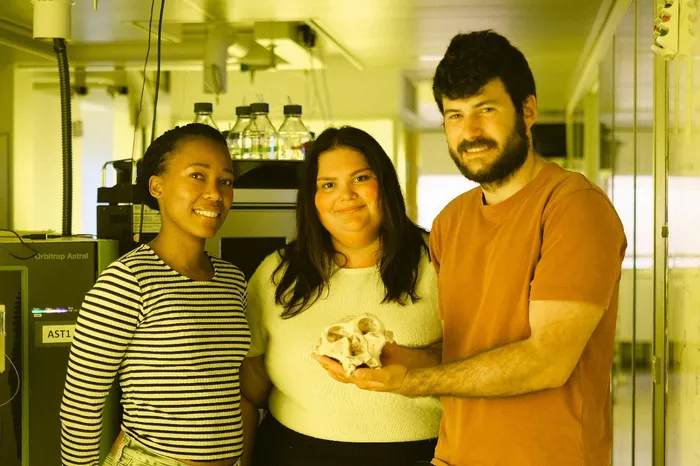Research

Researchers from the University of Cape Town (UCT) and the University of Copenhagen have used ancient proteins to uncover biological sex and hidden genetic variation in Paranthropus robustus – a close, extinct cousin of modern humans. Pictured, from left, are Dr Palesa Madupe, Dr Claire Koeng and Dr Ioannis Patramanis.
Image: Victor Yan Kin Lee
Researchers from the University of Cape Town (UCT) and the University of Copenhagen have used ancient proteins to uncover biological sex and hidden genetic variation in Paranthropus robustus - a close, extinct cousin of modern humans.
The groundbreaking study, published in the journal Science, analysed two-million-year-old protein traces extracted from fossilised teeth unearthed in South Africa’s Cradle of Humankind.
The discovery delivers some of the oldest human genetic data ever recovered from Africa and challenges long-standing assumptions about one of our early hominin relatives.
The team used cutting-edge palaeoproteomic techniques and mass spectrometry to identify sex-specific variants of amelogenin, a protein found in tooth enamel.
Two of the ancient individuals were conclusively male; the others, inferred through novel quantitative methods, were female. Pictured, from left, are Dr Palesa Madupe, Dr Claire Koeng and Dr Ioannis Patramanis.
Related Topics: